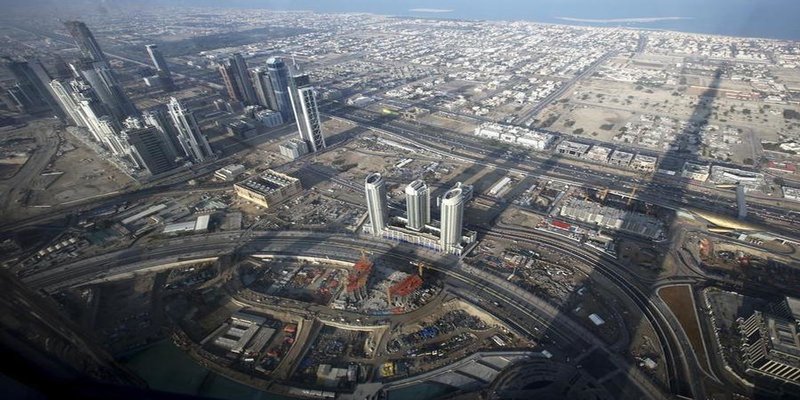Hospitality Boom – is Expo to soon?

Hospitality Boom – is Expo to soon?
With crude oil becoming more and more an unreliable gross domestic product for the Middle East, Gulf States such as the United Arab Emirates and Saudi Arabia are focused on creating one of the grandest hospitality venues on the globe.
The UAE (180 projects) and Saudi Arabia (134 projects) remain the most active hotel construction hotspots in the region. The busiest year for hotel openings leading up to 2020 is forecast to be 2017 with 189 projects and 58,527 rooms.
“That is a lot of bedrooms, bathrooms, windows, doors, terraces, restaurants, pools, spas, gyms, and much more to be fit out and equipped over the next five years,” said Gary Williams, Event Director of The Hotel Show Dubai, which took place between the 17-19 September 2016 at the Dubai World Trade Centre (DWTC).
“According to a forecast by Alpen Capital, hotel-room supply in the UAE will increase by 5.3% annually during the period 2012-2016, boosting volume from 96,992 hotel rooms to 125,383 by 2016. This level of growth will be necessary if the country is to deal with the anticipated influx of tourists.”
Creg Oats of Skift.com, said there are five primary reasons for the Middle East’s hospitality boom and subsequent drive for their Expo 2020:
Population effect – The steady rise in expats living and working in the region. “By 2030, China’s middle class will comprise 70% of its total population, while the comparable figure for India will be 50%,” quotes the report. “The impact on the GCC travel and tourism industry will be huge.”
Beyond Oil – The Gulf States have to start thinking beyond “black gold,” and with no other natural resources of much value beyond oil, they decided to pump over $300 billion and growing into the hospitality business. The UAE has also begun a program of waiving the 10% municipality fee for new hotels opening before 2017.
Infrastructure – UAE is single-handedly affecting global logistics: “‘Dubai is trying to become the node between Asia and South America, which is affecting the future of logistics and mobility on a global scale,’ says Professor Dr. Stefan Walter, managing director of the House of Logistics & Mobility (HOLM) at Frankfurt International Airport.”
Gateway – Abu Dhabi is becoming an international gateway. “The GCC is fast emerging as the new gateway to Africa, the last frontier in terms of natural resources such as oil, gas, uranium, and other resources—all of which will be in high demand across the world. With the added advantage of historic, economic, cultural, and strategic bonds with the African countries, the trade potential between the two continents is immense. Dubai alone witnessed a 700% increase in its trade with Africa over the last decade to USD 25 billion. Direct flights between the two regions have driven rapid growth in passenger traffic as well as cargo volumes, resulting in higher re-exports”
Social media and information – The global super information highway is making it easier for people around the world to research, book, and pay for their vacations and getaways online. “The Amadeus Future of Travel study ends with a look at the power of social media and trends relating to connected, personalized and sustainable travel. Without mentioning the viral #MyDubai account on Instagram, presently with 79,000 followers, the reports states Instagram is popular in the GCC mostly in the UAE and Saudi Arabia. On the photo-sharing platform, #JumeirahGroup and #VisitAbuDhabi are in the 8,000 follower range; #Dubai has 423,000 followers.”
Opportunities exist for boutique hotels and independent operators
Even with all the above benefits, the success comes with problems that the UAE and Saudi Arabia must overcome. Abdul Basit of the Khaleej Times writes:
“Over the past 18 months, the Middle East has experienced a number of geopolitical and economic challenges, creating disruption to feeder markets and adding further pressure to a year which was characterized by terror attacks, currency fluctuations and the lowest oil prices the world has seen in over a decade.” (2016)
A big question on everyone’s mind this year is where staff will come from in the future. As the region continues to struggle in the absence of a local talent pool, hoteliers in particular will be forced to consider options. Merger and acquisition activity will continue in the wake of high-profile hotelier deals, such as FRHI’s buy-over by AccorHotels at the end of 2015. The big three Gulf airlines, Emirates, Etihad and Qatar Airways, will continue to explore partnership opportunities with European and Asian airlines.
Looking closely at the forecasts of global financial, business, and tourism analysts, the Middle East is poised to take over the global hospitality market. With the coming Expo 2020 as Dubai’s premier, expect things to get even grander in the years, and especially decades, to come.
Follow MENA Solutions on Linked In and Twitter for more insight into the exciting progress being made in the industries we specialise in.
Article written by David Flemming, Director of MENA Solutions.

Get in touch with:




